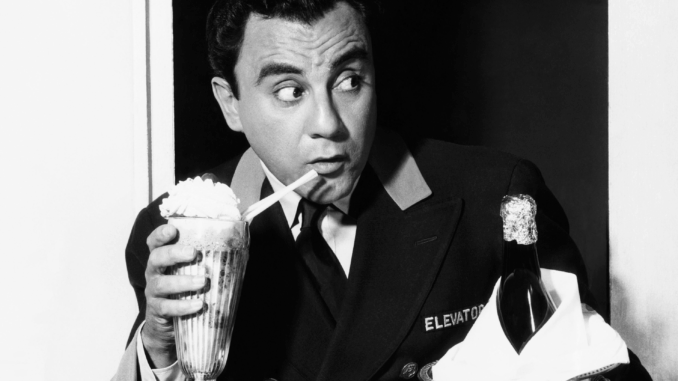
Bill Dana was far more than just a funny face on television—he was a multi-talented performer, writer, and visionary whose work reshaped American comedy. Best known for his character José Jiménez and for his role as Uncle Angelo on the beloved sitcom The Golden Girls, Dana’s contributions went far beyond what most audiences saw on screen. Although he passed away in June 2017 at the age of 92, Bill Dana’s influence continues to be felt in comedy circles, TV history, and social commentary.
This article honors Dana’s remarkable career trajectory after his memorable role in The Golden Girls, highlighting the depth of his achievements, the nuances of his creative transitions, and the legacy he left behind.
Contents
Life Before and During The Golden Girls

Born William Szathmary on October 5, 1924, in Quincy, Massachusetts, Dana’s early life laid the groundwork for a career marked by resilience, wit, and innovation. He served in the U.S. Army during World War II as part of the elite 263rd Infantry Regiment of the 66th Infantry Division. His service earned him a Bronze Star, underscoring a courage and dedication that he would later channel into his craft.
Dana’s career took flight in the 1950s and 60s as he wrote and performed comedy routines. He became a household name through his José Jiménez character—an innocent, well-meaning Latin American immigrant—whose debut on The Steve Allen Show catapulted Dana to stardom. Despite criticism in later years over racial stereotypes, Dana retired the character in 1970 and spent the rest of his life advocating for comedy that respected cultural integrity.
Fast-forward to the late 1980s, Dana was cast as Uncle Angelo, Sophia Petrillo’s brother, in The Golden Girls. In a handful of episodes from 1989 to 1991, he brought warmth and humor to the show as a quirky, lovable character who pretended to be a priest to avoid certain obligations. This role reintroduced Dana to a younger generation and helped cement his legacy in the pantheon of iconic sitcom guest stars.
Bill Dana’s Career After Golden Girl

Following his last appearance on The Golden Girls in the early 1990s, Bill Dana continued to pursue meaningful creative work, although largely away from the limelight. By this time in his life, Dana had already worn many hats—stand-up comic, sketch performer, sitcom lead, screenwriter, and author—and he began to focus more on curating and preserving the history of comedy itself.
In 1993, Dana released a memoir, titled “Jose Can You See? The Life and Times of Bill Dana.” The book was a thoughtful, humorous, and occasionally sobering look at his career, personal journey, and the complex reception of the José Jiménez character. Far from a simple autobiography, the book offered a behind-the-scenes glimpse at television’s golden age, his collaboration with figures like Don Adams and Steve Allen, and his later reflections on cultural representation in comedy.
During this period, Dana also lent his time and voice to causes he deeply cared about. He became involved in discussions about the evolving landscape of humor in America, particularly how comedians navigate cultural identity and political correctness. He gave lectures, attended panels, and consulted with aspiring comics, offering the wisdom of a man who had experienced both enormous success and the pitfalls of changing public sentiment.
Preserving Laughter: The American Comedy Archives
One of Bill Dana’s most enduring contributions after his TV career was the establishment of the American Comedy Archives at Emerson College in Boston. In 2005, Dana played a pivotal role in launching the project, which aimed to preserve and document the voices of American comedians through interviews, audio recordings, and written collections.
The Archives were born out of Dana’s desire to recognize the importance of humor in shaping national culture. He believed that comedians were not only entertainers but also social commentators whose influence deserved to be studied and remembered. The collection now includes interviews with comedy giants such as Phyllis Diller, Jonathan Winters, Betty White, and many others.
This initiative highlighted another side of Dana—the historian, the mentor, and the steward of laughter. He wasn’t interested in simply being remembered; he wanted the craft of comedy to be respected and its impact understood. In many ways, this project was the culmination of a lifelong mission to elevate comedy beyond mere entertainment.
Bill Dana in His Final Years

Though no longer frequently appearing on screen, Bill Dana remained active in his later years. He continued writing, gave occasional interviews, and stayed connected to the entertainment world. Friends and colleagues recall his wit as sharp as ever, his humility profound, and his commitment to creative integrity unwavering.
In 2011, Dana made one of his final TV appearances in an episode of the comedy web series The Real Girl’s Guide to Everything Else. While brief, the appearance was a touching reminder that even well into his 80s, Dana’s comedic timing had not diminished.
Dana passed away on June 15, 2017, at his home in Nashville, Tennessee. Tributes poured in from across the entertainment industry. Fellow comedians, actors, writers, and fans all commemorated his contributions and remembered him as a pioneer who opened doors, broke boundaries, and wasn’t afraid to evolve.
The Enduring Legacy of Bill Dana

Bill Dana’s life after The Golden Girls was anything but a quiet retirement. Though he stepped away from center stage, he took on the vital role of advocate and archivist for an art form he helped define. His dedication to ethical comedy, his willingness to reflect on and revise his past work, and his efforts to document the stories of fellow comedians speak volumes about his character.
Dana’s story serves as a powerful reminder that an entertainer’s influence doesn’t end with their most famous role. Rather, it continues in the values they promote, the stories they preserve, and the generations they inspire. Today, comedians, writers, and cultural historians alike benefit from the groundwork Dana laid—both in laughs and in legacy.
Though he is no longer with us, Bill Dana remains a shining figure in the history of American comedy. His roles, words, and vision continue to echo through sitcom reruns, comedy scripts, and archival recordings. In remembering him, we remember the joy he brought and the standards he helped raise.
Rest in peace, Bill Dana. Your laughter lives on.
See more at KpopAll and fanpage Golden Girls, Golden Girls.

Leave a Reply